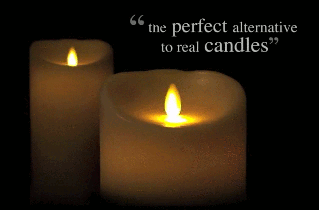Parashat Vayetze - Genesis 28:10-32:2 - "Abraham's Tent" - Weekly D'var Torah From Rabbi John Ludemann
By Rabbi John Ludemann, BTh.
This week we are introduced to the mothers of the nation of Israel (Genesis 28:10-32:3). Jacob goes as instructed to Paddan-Aram (modern day Iraq) where uncle Laban’s lives. Uncle Laban is a shrewd businessman, to the point of being downright under-handed. Jacob meets and immediately falls in love with Laban’s daughter Rachel (Genesis 29:3-12). Jacob, having no wealth for a dowry, agrees with Laban to work for him for 7 years as an indentured servant to buy Rachel’s hand in marriage. When the 7 years come to fruition, and Jacob demands the payment of Rachel’s marriage, Laban capitulates. Laban agrees to Rachel’s marriage but slips Leah, Laban’s older daughter, in Rachel’s place by handing his older daughter to Jacob with a veil on her face (Genesis 29:16-25). This is why we in modern times have the tradition of the father lifting the veil and presenting the bride to the groom, so the groom can see the face of his bride. So, after Laban tricks Jacob, he offers Rachel for another 7 years of indentured servitude. Jacob quickly agrees. In this bargain, Laban also gives Jacob the two handmaids of Leah and Rachel, Zilpah and Bilhah (Gen. 29: 24, 29). These four women will give birth to what will become the 12 tribes of Israel.
On the surface, Laban is quite a creep. Yet, if we look at the larger scope of what is going on, we find that this is more the education of Jacob than the bait and switch of a dupe. One of the reasons Isaac loved Esau was he had practical knowledge of the world, but did not have the spiritual fortitude of Jacob. Jacob up into this point was a bookish, “Ivy Tower” person. All book knowledge with no practical experience. You may have met these folks in your life. My college roommate would refer to such individuals as being “so spiritually minded that they are no earthly good”. G-D has a way of placing folks that on the surface are complete ‘ogres’ in our lives so that teach us what we need to know to be successful in our future. What stops us from becoming an ‘Esau’ is our strong spiritual and moral base.
By the end of Jacob’s 21-year tenure with Uncle Laban, he not only understood what he needed to learn as a business person, but was able to turn the tables on Laban and best him at his own game (Gen. 30:40-43). Jacob also kept true to his obedience to the G-D of Abraham and Isaac. He was able to learn the business without abandoning his beliefs.
We are too like Jacob, we attempt to do the will of G-D and at the same time, we try to make a living and provide for our family. The business world can be a treacherous and sometimes an under-handed place. The balance is that we don’t sell our beliefs away with our success. The Jewish commentators state that to be a good teacher (Rabbi) you need to be a working person, as well as a scholar. The reason is: how can you give advice to a person if you do not experience their struggles? I had a philosophy professor that would say “when philosophy hits the marketplace, it becomes pragmatism.” We live in a real world created by a real and living G-D. There are no super-heroes in the Hebrew Scriptures. There is a reason for that; it is to show that we are only a short hop from being the people that we meet in the bible. That means that G-D is available to us, and understands our struggles, both as people and observant adherents to G-D’s standards. We don’t need to leave our beliefs at our front doors, but we can take them to our places of business and into the marketplace. We can be both spiritually minded and do earthly good. All we have to do is be practical and mindful.
The struggle is real, and G-D knows you can succeed with your soul intact.
Next week: Jacob wrestles with Esau.


I hadn't thought about G-d's plan intentionality including Laban before. I guess I'd always considered him a road-bump instead of part of the divine plan. Thank you, Rabbi.
ReplyDelete